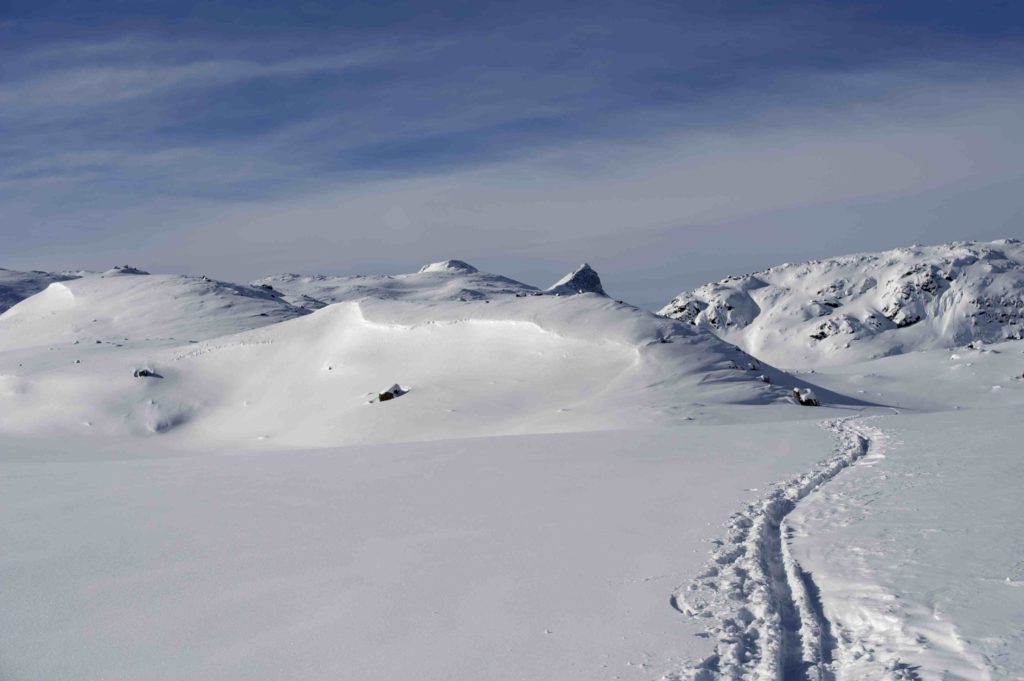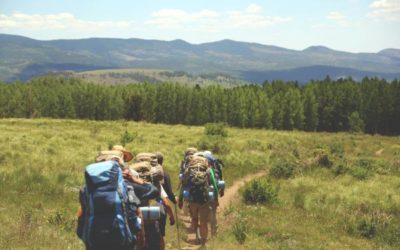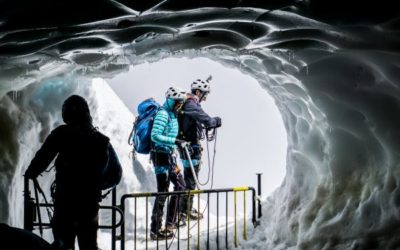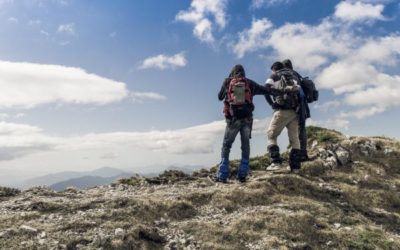One of the most important details to consider in leading groups outdoors is the content you will teach. What does your group need to learn or process right now? What themes will I stress throughout the camp or retreat? Depending on the church you want to serve or the organization you are representing there are 10 timeless objectives that I think are worth considering as themes or content for camps.

RELATED: FREE RESOURCES
You can think of this list as 10 common funnels to direct people’s learning during your camp. Hopefully you will be able to measure in some small way if you’ve hit the mark on your trip. Again, this does not depend on you alone—this is God’s work. Intentional outdoor leaders seek to be good stewards of the limited amount of responsibility we’ve been given under God’s absolute sovereignty over our group. Here are ten very common themes that I have used to organize the camps and they follow the acronym, W.I.L.D.E.R.N.E.S.S. for easy memory while in the field:
WORLDVIEW
The four basic questions imbedded in one’s worldview are: 1) Where did I come from? 2) What is the meaning of life? 3) How do I determine right from wrong? 4) What happens to me after I die? (Titus 2:11-14)
INTERCESSION
Jesus retreated to the wilderness often for blessing and preparation for spiritual conflict. Luke shows how the wilderness was a place of preparation for conflict with Satan. Jesus also retreated to the wilderness before handling the spiritual burden of healing the multitudes.
LEADERSHIP
The sky is the limit: We could use the week to demonstrate a Biblical understanding of how to form and carry out a vision or we could emphasize how to lead, motivate and empower others to get involved and participate in what God is doing in their midst.
DISCIPLESHIP
You may want to focus on the fruit of the Spirit, or how we are called to show mercy and pursue justice for vulnerable people in our world. Whichever angle we take, focusing on discipleship as a learning objective is to funnel our trail talks and discussions around how we are engaging our world for the glory of God.
EVANGELISM
As followers of Jesus we want to bring the rain of the Gospel to dry and thirsty souls. There are a myriad of ways to share the Gospel effectively with young people in the context of a wilderness journey. For starters, write in a Gospel path through your Bible for easy reference.
RELATIONSHIPS
Our lives are connected to a network of relationships. What should healthy family relationships look like? What do healthy relationships look like with friends, with your church, in your local community, across cultures? The wilderness is a laboratory for discovering God’s design for relationships.
NURTURE
Wilderness therapy in the psychological sense is largely about identity formation and trust. In orienting our lives to Christ our True North, we find that He is the Great Physician and the Rock of our salvation. Focus on helping others sever old ties to behaviors or thinking patterns that have greatly damaged their relationship with God or others
EXPECT GREAT THINGS
Many heroes of missions got their vision from reading stories and biographies of other missionaries who had gone out before them. William Carey, is famous for saying, “Expect great things, attempt great things!” This learning objective focuses on how to infect others with the missionary spirit.
SPIRITUAL FORMATION
There are four main elements to our ongoing conversation with God: 1) We speak to Him, 2) We believe that He listens to us, 3) He speaks back to us, and 4) We exercise discipline to listen to Him. Conversational prayer often helps us reboot from the spiritual paralysis that comes from habitual disobedience or disbelief.
SCENARIOS
This learning objective focuses on critical thinking, decision-making and discerning the will of God. Sensible decision-making involves handling three types of knowledge: 1) Knowing what to do, 2) Knowing how to do it, and 3) Knowing when and why to do it.
ACTION STEPS TO IMPROVE YOUR NEXT CAMP
-
- I’ve just given some general themes here. If you want more details in how to expand on these themes at your next camp, you can search for these terms on my blog, or use my book, Christian Outdoor Leadership as a resource to write great Bible studies or trail talks.
- Click here to download a free 1 page field guide to refer to the WILDERNESS Objectives.



